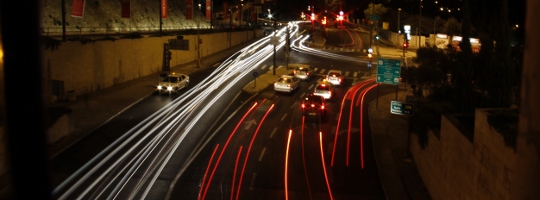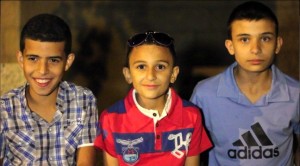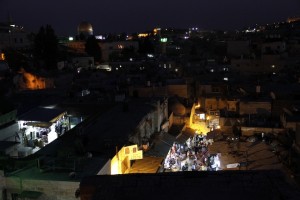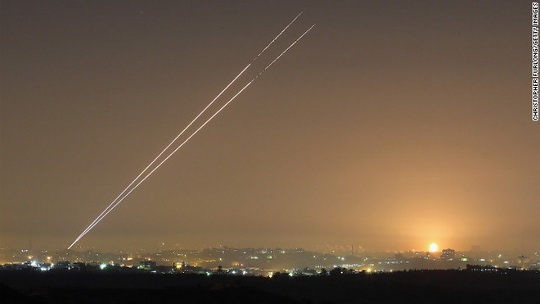Rock Throwing in Bethlehem
A half dozen kids in their early teens were notably distressed, one appeared to have been crying or at least, quite upset. They gathered less than fifty meters from the base of the checkpoint and tower where the wall turns a sharp corner, the site of heavy protests just last week during the battle between Hamas and Israel in Gaza and beyond.
Three of the kids gathered stones from construction site rubble. They leaned around the corner, peering at the guards in the high tower. One smile at me and I smiled back, both with body language and in English asking what they were up to (the stone throwing was obvious, but the reason was what I was after). The taller, thinner of the bunch motioned to the stones and then the tower. “Yeh, I get that. But why? E’nte?” I asked. The others were clearly gathering for a quick hit-n-run volley and so I reached for my camera. The same kid immediately motioned “No! No!” with his hands across his face and then pointing at my camera. I waited to see if he would change his mind, and then returned my camera to its bag.
I chose a spot, leaning against the wall to watch. This was not a major demonstration, rather quite clearly some upset kids, a grievance of some sort they wanted to settle. All at once they rushed the wall and launched the stones. None made it as high as the partially protected windows, but in all, fairly good accuracy. Some experience, I assume.
Immediately, a white van pulled over and from it emerged two men in their fifties who grabbed the boys by the backs of their shirts collars and arms, scolding them as they dragged them away. One got loose, turned, and ran directly into me. He was the one who had appeared to have been crying earlier, perhaps the reason this one-sided battle had formed.
I held him momentarily, more concerned he would fall if I let go. He pushed himself back, I stepped aside, and the men continued to drive the kids away, talking to them, trying to calm them down.
So much of the rock throwing, the protests that turn nasty are kids against kids, literally teenagers and early twenty-somethings with stones and flaming cocktails on one side, relative children of the same age on the other pointing guns. It’s the same on the news about Egypt, Syria, and everywhere else this kind of unrest is sustained. Those with families, jobs, and what feels like a future are more likely to remain home and watch on television.







